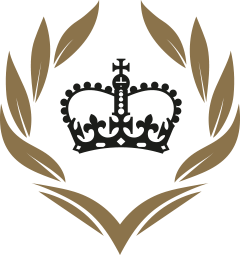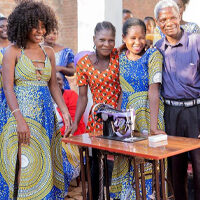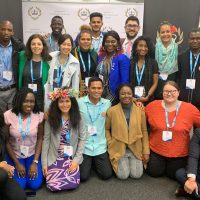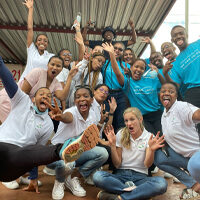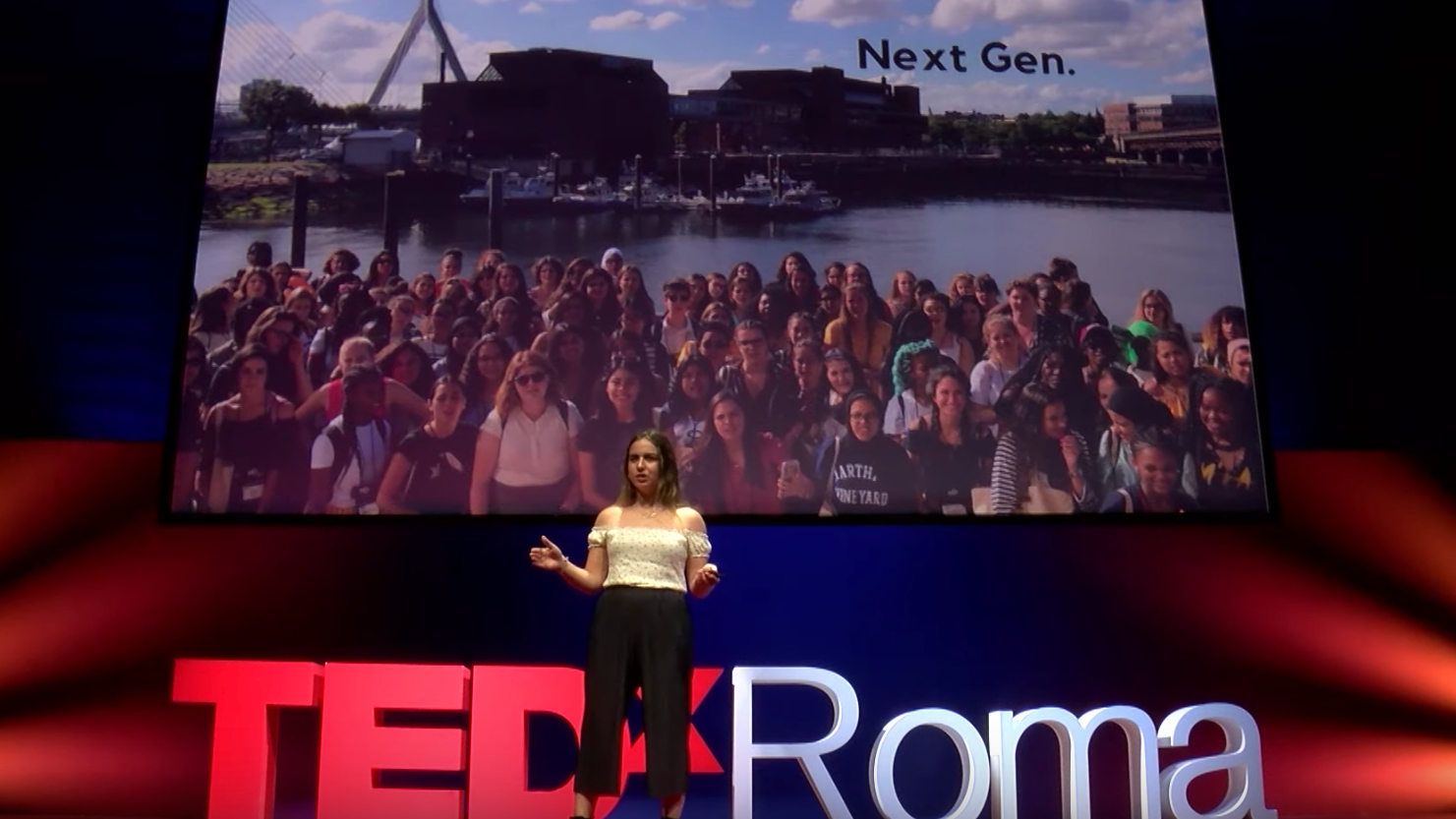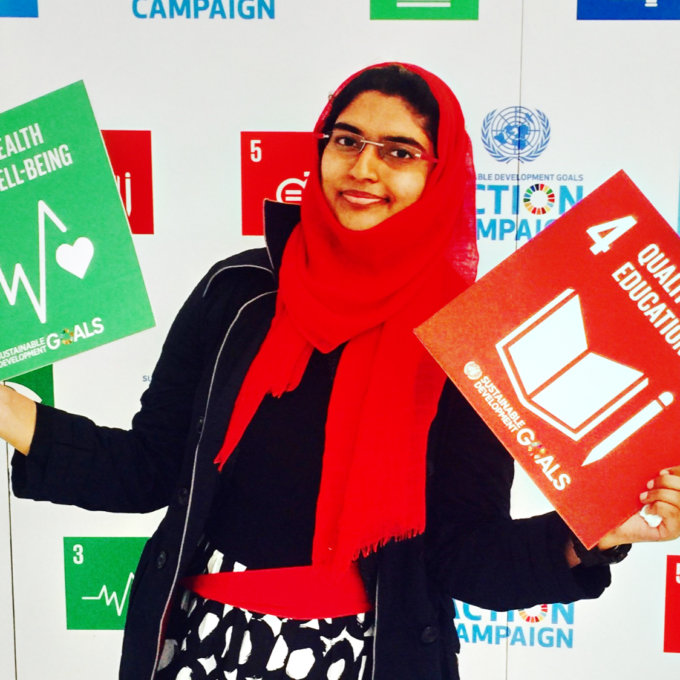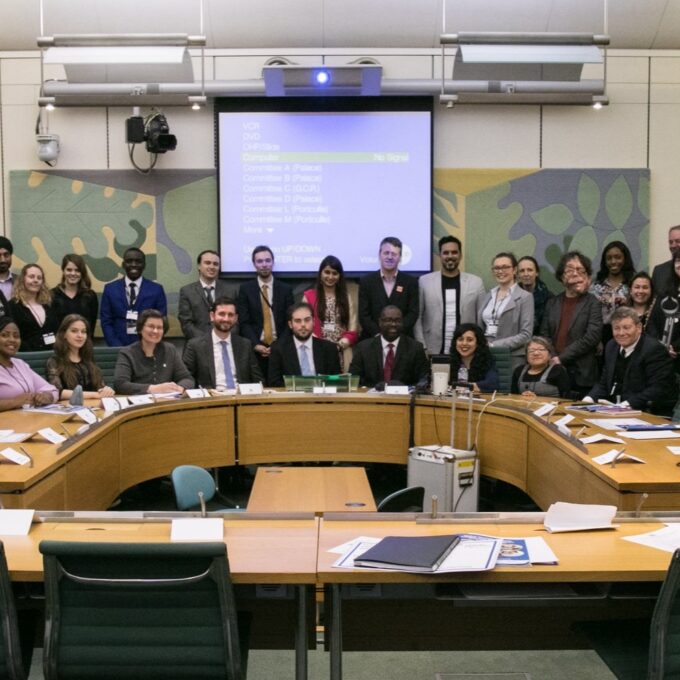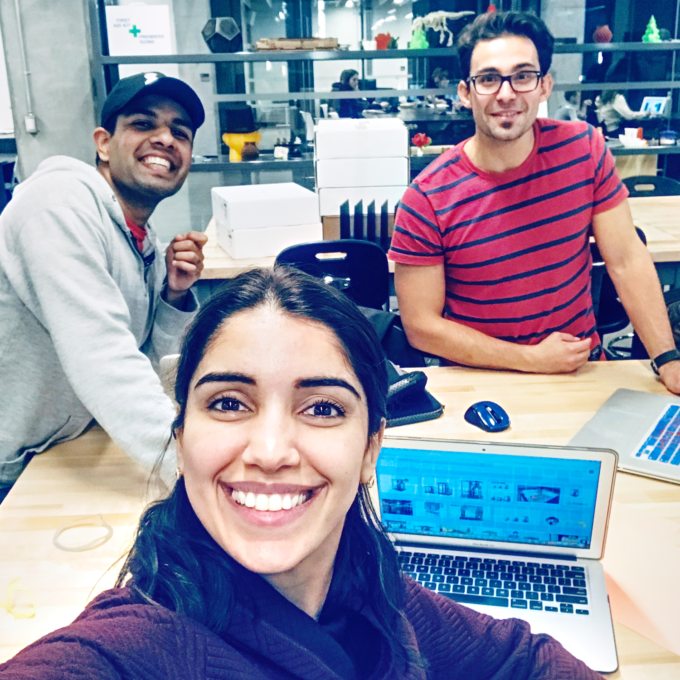By Joana Baptista, founder of She Dot
Hey! I’m Jo, I’ve just turned 18 and I’m a student, public speaker and award-winning social entrepreneur from Oxford, England. To say life is busy would be an understatement – but I love it, and I hope that by sharing my thoughts and experiences below, I will maybe inspire you to think about social entrepreneurship for yourself too!
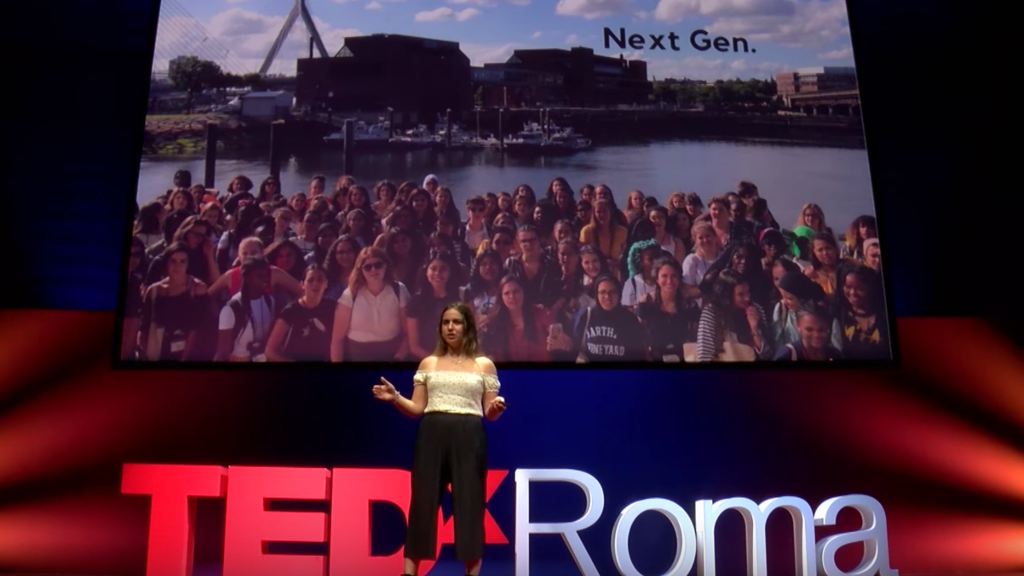
Firstly, I’m the founder of She Dot, a social enterprise which aims to bridge the socio-economic gap for young girls pursuing traditionally male careers, such as STEM and entrepreneurship, through skills workshops, talks and career insight days. I’ve also founded a number of start-ups (although the key word here is start!), which include an economics magazine and a tech podcast, developing an attachment for toothbrushes designed to improve the brushing habits of young children, and creating a series of children’s picture books which tackle important social issues – more on these later.
I also do public speaking, which has taken me to some amazing places. For example, for International Women’s Day 2018, I had the opportunity to host a panel for Facebook – an incredible experience and I got to meet and speak with some awesome, pioneering women. Later that year I spoke at World Summit AI, and was immersed in two days of what I can only describe as brain-bending awesomeness; while with TEDx, I spoke first at TEDx Oxford Brookes University about how we could get more young people involved in social action, before being invited more recently to give a TEDx talk in Rome to several thousand people. This made national television and I even got approached for selfies (as big of a taste of celebrity life as I will ever get!). There I talked about reverse mentoring and why we should have more of a youth influence in decision making – both in the corporate and political sectors – and the importance of the youth teaching adults, not just the other way around.
My experience: starting out as a social entrepreneur
As mentioned above, one of my current initiatives sitting under the She Dot umbrella are our new collection of story books. These take traditional fairy tales and re-write them with a modern twist – tackling themes such as sexism, disability discrimination, racism and homophobia. The idea for these came from a volunteering trip I did to a local primary school, which made me realise how many people don’t have access to the same resources that I was lucky enough to have. I wanted to do something to bridge that gap and to better represent the experiences that they’re living. The books therefore sprung off some very personal experiences of my own, but also those of others who had experienced discrimination in some form, and I used that inspiration to find a way to make a positive change.
Something I was once taught is in entrepreneurship you don’t need to make your real product straight away to prove your idea is successful. In fact, testing, learning and re-iterating is an extremely important part of the process. Starting out small and creating something known as the Minimum Viable Product (or MVP), allows you to show that, in theory, your business model would be successful as a fully developed product. By creating a simplified version of your bigger plan, you are showing investors that there is a real problem being solved and customers are willing to pay.
At She Dot, we applied this MVP technique when launching our range of children’s books; after initially fundraising through creating sweatshirts for local productions, drafts were written and read to school children, and LOTS of market research was completed to prove we had a viable product. We were then able to develop the stories knowing that we had an interested audience and a viable market for our offer.
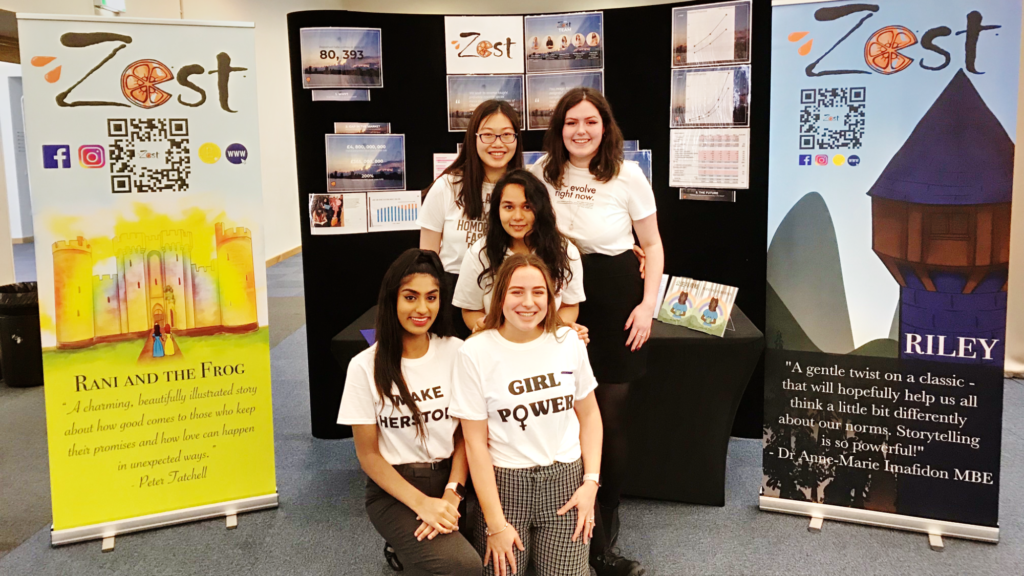
However not everyone has always been supportive of our mission. A prime example of this was when we attended a trade fair to promote and sell our books, and we unexpectedly came under attack for creating and selling stories that openly tackled issues such as sexism, racism and homophobia. These people simply didn’t believe in the need for ‘classics’ to be retold, and it was really difficult to directly face hate for something that should only be seen as a positive narrative for young children to see. Despite finding the experience very upsetting, it ultimately only reaffirmed in my mind that we were doing the right thing. If no one came to us and said they’d rather the princess was white or skinnier, or that they preferred that a girl wasn’t the heroine of the story, then there would be no need for the books in the first place.
I’m now proud to say, that despite these very rare negative reactions, the books’ success speaks for itself. They are now available in 7 languages, and come in paperback, e-book and audiobook variations. I’m proud to say that they’ve also received the endorsement of key figures such as Peter Tatchell and Miriam Margolyes – which I’m really quite chuffed about!
Dealing with negativity and learning from failure
I’d definitely describe myself as quite an impatient girl with big dreams, and I often catch myself setting these wildly unrealistic goals. I therefore set myself up for disappointment when I expect to achieve huge success in the blink of an eye and fail to remember that achievements take time. I know how important it is to pace yourself and celebrate every step, and I’m making an effort to give myself the space to appreciate that.
I was really fortunate to have a school and people around me who really supported everything I did, but there are always going to be people who don’t understand why you are doing what you’re doing. At one point a teacher refused to let me miss his lesson to do a talk at a school because “I didn’t need it for my CV”. I think he missed the point that I do what I do not to add something to my CV, but because I truly love it and I care about making life better for others. This presumption that it’s all for personal gain is common, and it’s taken some time for me to be able to rise above it and stand my ground in situations such as these.
People are quick to say that failure is the most important part of success, and this is absolutely true, as you do learn a whole lot from making mistakes. However, we often forget that it’s really hard to deal with failure emotionally. For me, the greatest obstacle is learning to see failure in a positive light and learning that criticism and mistakes can be constructive. The best advice I can give to someone who also struggles with this is, be kind to yourself. Take the time to appreciate what you’re doing, why you’re doing it, and carry on shining.
Feeling proud and looking to the future!
I guess my proudest moments divide into two parts; the particular events I’ve been most proud of, and perhaps also a turning point I’m most proud of. A couple of occasions that first spring to mind have got to be giving a TEDx talk in Rome which was pretty incredible, and also presenting to HRH Princess Anne. Having said this I’d have to say I’m really proud of the moment I realised that success doesn’t have to be individual – helping other people’s successes is just as big of an achievement.
I’ve always aspired to leave the world in a better place to the way it started – we’re only around for a short amount of time; we’ve got to make the most of it and every opportunity we’re presented with. With this in mind, my biggest success measure will be how much have I made the people around me proud of what I do. There’s nothing more rewarding than seeing people smile, grow in confidence, or develop their character and skills as a result of something you’ve done.
Looking to the future, I have lots of ideas! I’d like to grow the She Dot programme to at least 15 new schools over the next year, and onboard ambassadors to deliver the sessions to schools near them. I also recently spoke to a former player of the US national women’s soccer team who now runs programs for disadvantaged school kids to get them into the sport. It was awesome to discuss ideas together and see where we could go next via collaboration. I’d also love to do some sort of ‘agony aunt’ service, focusing on mentorship of other young girls.
Now it’s your turn!
I’m sure we’ve all heard in our time: “what do you want to be when you’re older?” – but why when we’re older? Why not right now? I think it’s so important to showcase and celebrate young talent to not only thank and recognise the work they do against all adversity, but also to inspire as many new young people as possible to get involved, creating a butterfly effect.
Here are my top 3 tips for starting out as a young entrepreneur:
1. Identify the problem and lay foundations. It’s super important to really think out the problem you are trying to solve, rather than get carried away by your fantastic idea. Remember to lay down all the groundwork for your idea before you hit the ground running. Ask yourself the tough questions and deal with the boring bits – it’s just as important as the exciting idea.
2. Do something you love! There’s no point pursuing something just because you think it makes the most money or seems easy – it will really show and doing something you don’t believe in wholeheartedly will be really tough to dedicate so much time to every day.
3. Be kind and make connections. This is something that one of my greatest inspirations, author, motivational speaker and women’s advocate, Pinky Lilani CBE DL, taught me. Kindness is often left out of the leadership equation but doing one kind thing a day will make more impact than you will ever know for someone. You never know when something someone else does for you could change your life, and vice versa.
Follow She Dot on Instagram, or check out www.shedot.co.uk for more information. You can also follow Joana on Twitter and discover more about her via www.joanabaptista.co.uk.
